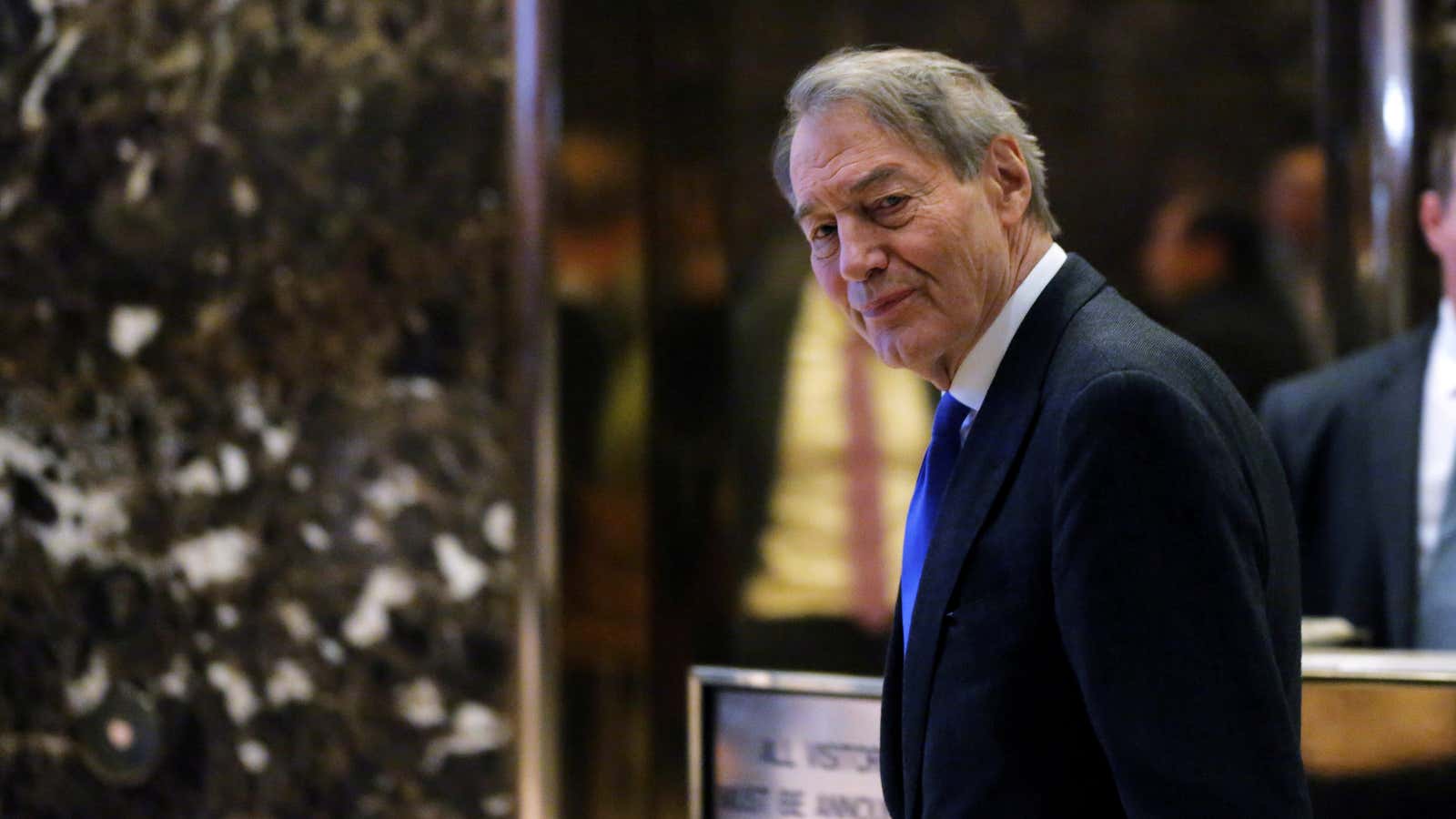Examine the list of high-profile men in media and entertainment accused of sexual harassment or worse, and you’ll find many of them sit at the center of organizations built around their own talents.
In some cases, they were the stars of shows bearing their names: Bill Cosby, Bill O’Reilly, Louis C.K., Charlie Rose. Others, like Kevin Spacey and Brett Ratner, are star directors or performers indispensable to their productions. Harvey Weinstein was so central to his business it was named after him.
Of course, plenty of harassment happens at the hands of people who are not high-profile, or even high-ranking, and it can go unchecked even at sprawling companies that are far bigger than any one person associated with them. But there’s a “particular vulnerability” in organizations where one individual wields outsized influence and control.Michael Cohen, an employment lawyer with Duane Morris LP in Philadelphia who helps companies design compliance training.
“Claims of sexual harassment, in my experience, don’t have much to do with sex,” Cohen said. “They have to do with ego, and they have to do with power.”
Large corporations have learned the hard way the value of robust policies and procedures to guard against discrimination and harassment. While the guidelines are often designed to protect the organization against lawsuits, they can act as a bulwark against the worst behaviors, and create a standard of expectations. It’s not unheard of for senior executives, even CEOs, to be fired from big corporations for their unacceptable behavior. Steven Heyer, of Starwood and Harry Stonecipher, of Boeing, for example, were both ousted after allegations of personal misconduct.
But smaller operations—like entertainment production companies—are often created quickly and with minimal staffing of back-office functions. They frequently don’t have the same institutional safeguards in place, meaning the corporate culture can more easily be determined by the biggest personality. When one man sets the tone and direction of an organization, the definitions of acceptable workplace behavior can be redefined, and their employees can fear the consequences of pushing back.
Actress Ellen Page gave a disturbing yet illuminating account on Facebook of the culture set by Ratner on the set of a movie he was directing, where he insulted and degraded women without consequences. When she objected to his behavior, she was chastised, she says:
I got into an altercation with Brett at a certain point. He was pressuring me, in front of many people, to don a t-shirt with “Team Ratner” on it. I said no and he insisted. I responded, “I am not on your team.” Later in the day, producers of the film came to my trailer to say that I “couldn’t talk like that to him.” I was being reprimanded, yet he was not being punished nor fired for the blatantly homophobic and abusive behavior we all witnessed.
Ratner has pushed back on some of the claims against him.
Challenging the abuses of a powerful man at a small organization can carry risks absent from large companies, which can more easily survive the loss of one individual. Taking on the star of a show can threaten the entire operation, putting dozens of jobs at risk. Rebecca Corry, an actress, says that when Louis C.K., the guest star on a TV pilot she was filming, made lewd comments to her, its producers offered to stop the shoot, but she declined. “I had no interest in being the person who shut down a production,” she said in a statement to the New York Times.
Making fun of the stodgy corporate culture of large corporations is virtually its own genre of comedy. Those rules serve a purpose, though, and smart organizations have in place the structures to ensure that no individual is more important than the company.
